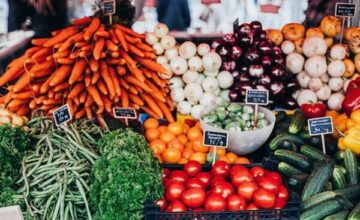
In recent times, we are seeing upheaval and discontent in the quality of the food items that we consume on a daily basis.
Use of synthetic ingredients in food items and their potential connection with hazardous aftermaths has prompted food regulators to take strict action on these foods.
Many unhealthy and potentially hazardous food items continue flourishing in the market, so the onus is on us to identify the unhealthy ones and stop consuming them.
In the past many food items were banned due to unhealthy ingredients and their potential side effects on human health.
Here is a list of all such food items:
1. Trans fats
Trans fats, also known as partially hydrogenated oils, were once widely used in processed foods for their ability to improve texture and shelf life. However, research has shown that trans fats raise levels of “bad” LDL cholesterol and increase the risk of heart disease. In 2003, Denmark became the first country to ban the use of trans fats. Since May 2020, Bangladesh, India, Paraguay, the Philippines and Ukraine have also passed best-practice trans fat elimination policies, according to the World Health Organisation (WHO).
2. Artificial food dyes
Synthetic food dyes are commonly used to enhance the color of processed foods and beverages. Some studies have suggested a link between certain food dyes and hyperactivity in children, as well as potential carcinogenic effects. Norway, Finland, France, Austria and the UK have banned the use of food dyes.
3. Sodium Nitrite/Nitrate
Sodium nitrite and sodium nitrate are commonly used as preservatives in processed meats such as bacon, hot dogs, and deli meats. When cooked at high temperatures, these compounds can form nitrosamines, which are known carcinogens. While sodium nitrite/nitrate is still permitted for use in small amounts as a preservative, some countries like Norway, Sweden, and Canada, and Germany.have imposed limits on its use in processed meats.
4. Olestra
Olestra is a fat substitute used in certain snack foods to reduce calorie content. However, olestra can cause digestive side effects such as diarrhea and abdominal cramping, and it may interfere with the absorption of fat-soluble vitamins. Due to these concerns, the use of olestra has been restricted in countries like the UK and Canada.
5. Brominated Vegetable Oil (BVO)
Brominated vegetable oil is added to certain beverages, such as citrus-flavored sodas, to help emulsify flavorings and prevent separation. However, brominated vegetable oil contains bromine, which has been linked to health issues such as neurological symptoms and thyroid disorders. More than 100 countries have banned or restricted the use of BVO in food and beverages.
6. Potassium Bromate
Potassium bromate is a food additive used to strengthen dough and improve the texture of baked goods. However, studies have shown that potassium bromate is carcinogenic in animals, and it may pose a cancer risk to humans as well. Use of potassium bromate has been banned in Europe, Canada and China.
7. Acesulfame Potassium (Ace-K)
Acesulfame potassium is an artificial sweetener used to sweeten a variety of foods and beverages, including soft drinks, desserts, and chewing gum. While acesulfame potassium is approved for use in many countries, some studies have raised concerns about its safety, including its potential carcinogenicity.
8. Glyphosate residue
Glyphosate is a widely used herbicide that is sprayed on crops to control weeds. While glyphosate itself is not used as a food additive, residues of glyphosate can sometimes be found on food products, particularly those made from conventionally grown crops. Some studies have suggested that glyphosate may be carcinogenic, although regulatory agencies have concluded that it is unlikely to pose a significant risk to human health when used as directed. In France, the Netherlands and Belgium, glyphosate is banned for household use. There is a partial ban on the use of glyphosate in Germany. Vietnam is the only country in Asia to have fully banned the use of the chemical.
9. Highly processed foods
While not a specific food item, highly processed foods as a category have faced scrutiny due to their potential health risks. Processed foods often contain a variety of additives, preservatives, and artificial ingredients, some of which may have carcinogenic properties or other adverse health effects. As a result, many health experts recommend minimizing consumption of highly processed foods in favor of whole, minimally processed alternatives.




